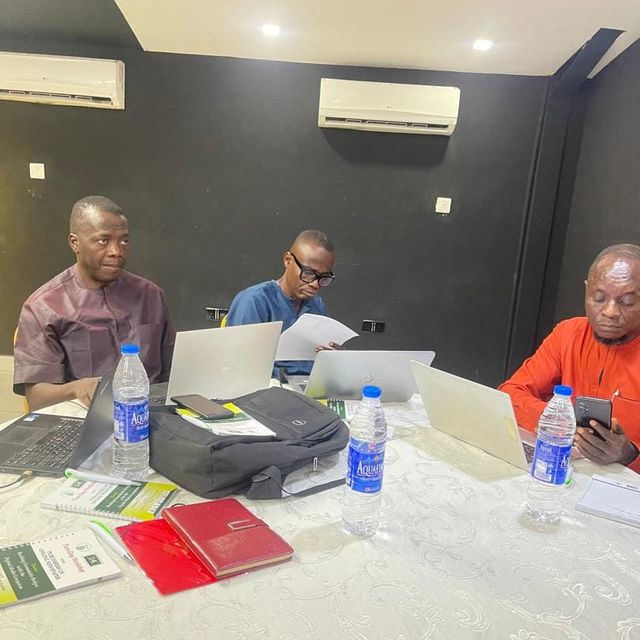The National Identity Management Commission (NIMC) has issued a stern warning to its Front-End Partners (FEPs), threatening to withdraw their licenses if they are found charging Nigerians for the National Identification Number (NIN) enrolment.
This warning comes in response to numerous complaints from Nigerians about being forced to pay fees for a service that is meant to be free.
According to a statement released by NIMC’s Head of Corporate Communications, Kayode Adegoke, on Saturday, the Commission is taking these complaints seriously.
In the statement, NIMC also confirmed that it has directed security agencies to track and apprehend any FEP or NIMC staff caught extorting money from NIN applicants.
NIMC stressed that enrolment for the NIN is free and that it has not authorized any of its staff or FEPs to demand money from applicants.
“Anyone caught will be sanctioned appropriately in line with the provisions of the law, and the license of such FEP will be withdrawn,” the Commission warned.
NIMC has made it clear that it is committed to ensuring a seamless and fair NIN enrolment process, and that it will continue to fight against extortion within the system.
The Commission has urged Nigerians to report any staff or FEP demanding money for NIN enrolment. Complaints can be sent via email to [email protected] or through the phone number 07002255646.
Nigerians Under Siege: NIN Enrollment Fees Are Illegal
A recent report by Nairametrics highlighted a troubling issue: some FEPs have been charging Nigerians for NIN enrolment despite the fact that the service is supposed to be free.
The charges, which have sparked outrage among Nigerians, are significantly hindering the progress of the NIN enrolment process.
NIMC’s intervention comes after several Nigerians expressed their frustrations over the illegal fees being demanded by these partners.
While some FEPs have defended their actions, citing delays in receiving payments from NIMC and the need to maintain their operations, the Commission has made it clear that these justifications are not acceptable.
NIMC recently announced that it had cleared all outstanding payments to the licensed partners, making the charges even more difficult to justify.
The engagement of FEPs was a stop-gap measure, initially approved by the former Minister of Communications and Digital Economy. The idea was to help scale up NIN enrolment while awaiting the commencement of the World Bank’s National Identification for Development (ID4D) project.
However, the illegal charges are only adding to the delays in the process.
The NIMC’s NIN enrolment programme has faced significant setbacks despite the government’s push for all Nigerians to obtain their NINs.
As of October 2024, NIMC had issued 115 million NINs to Nigerians and legal residents.
However, this figure shows that despite the requirement to use the NIN for vital services such as international passports, driver’s licences, bank accounts, mobile SIM registration, and even educational exams like JAMB and WAEC, many Nigerians are still without their NINs.
In fact, NIMC’s data from December 2023 indicated that just over 104 million NINs had been issued by the end of the year. This means that as of October 2024, only about 10 million more NINs were issued, despite the year being more than halfway through.
For a country with an estimated population of over 220 million people, this leaves a significant gap: over 100 million Nigerians are still missing from the identity system.
In light of these challenges, the World Bank’s National Identification for Development (ID4D) project aimed to ensure that 148 million Nigerians had received their NINs by the end of June 2024. However, this target was not met, leading to a restructuring of the project.
The World Bank has extended the project’s timeline until June 2026, giving the NIMC additional time to meet its goal.
The NIMC’s recent actions are part of a broader effort to address concerns around the enrolment process. While many Nigerians are frustrated with the delays, they are also deeply concerned about the illegal charges imposed by some FEPs.
The NIMC’s strict stance is expected to send a strong message to those involved in these practices.
Experts believe that tackling these illegal fees is essential for the success of the national identification programme.

